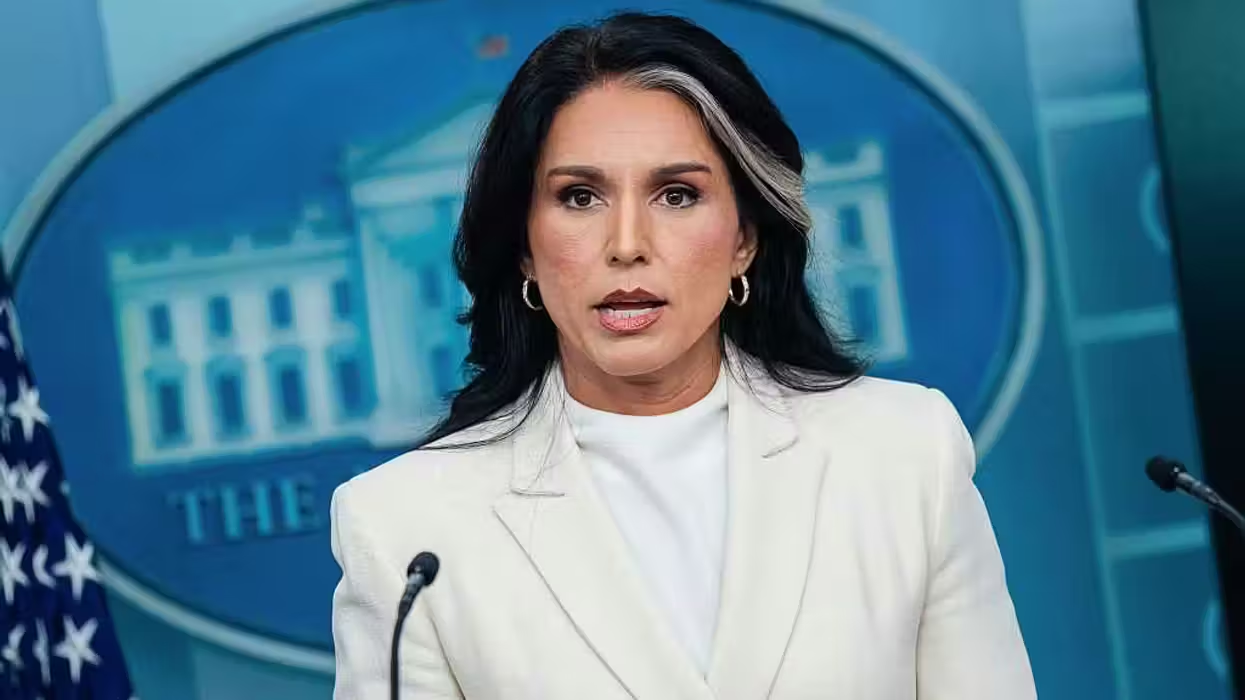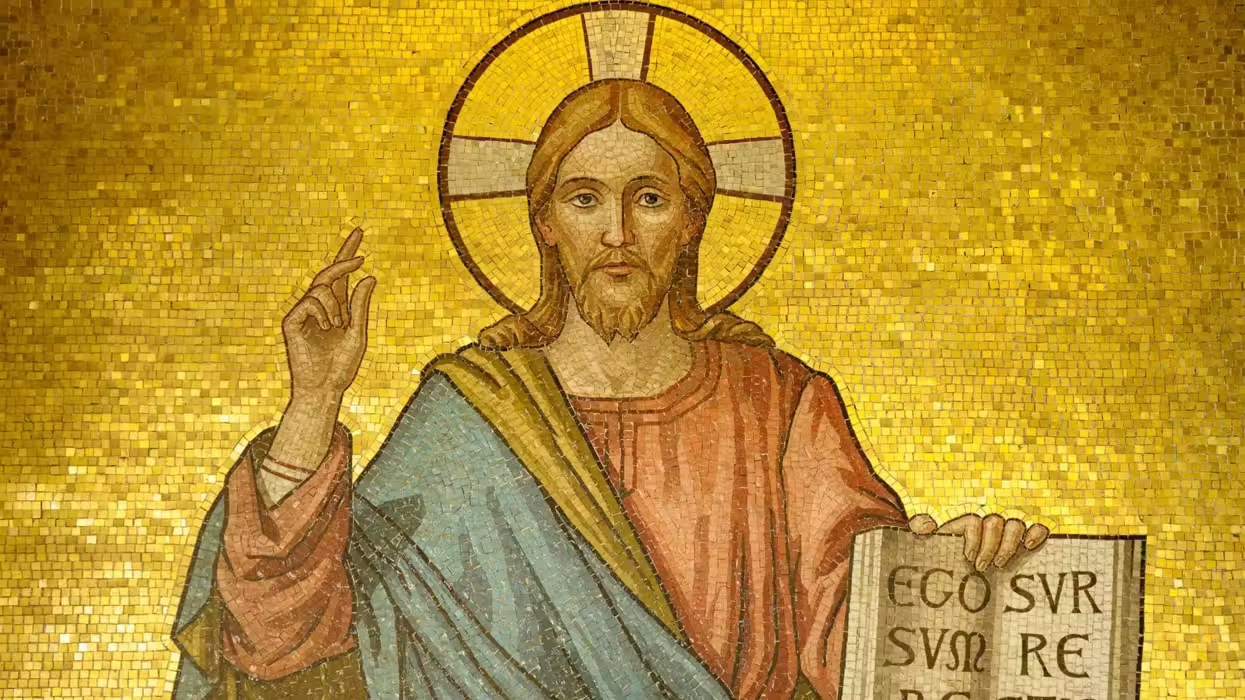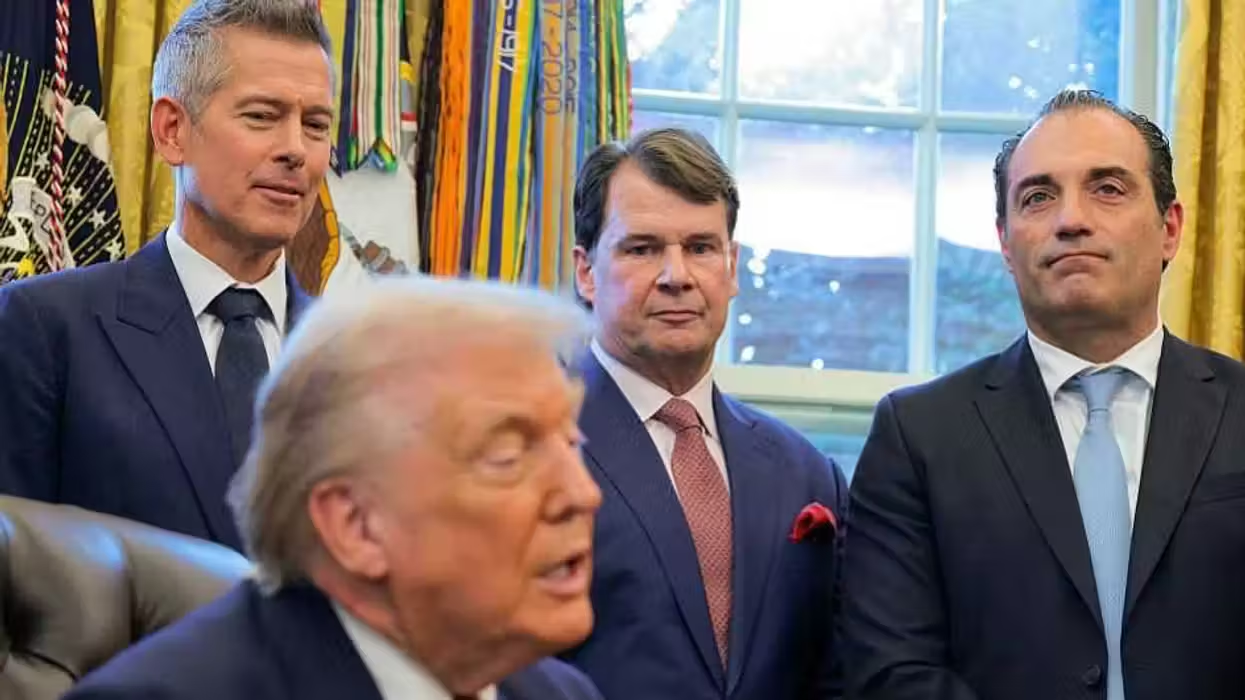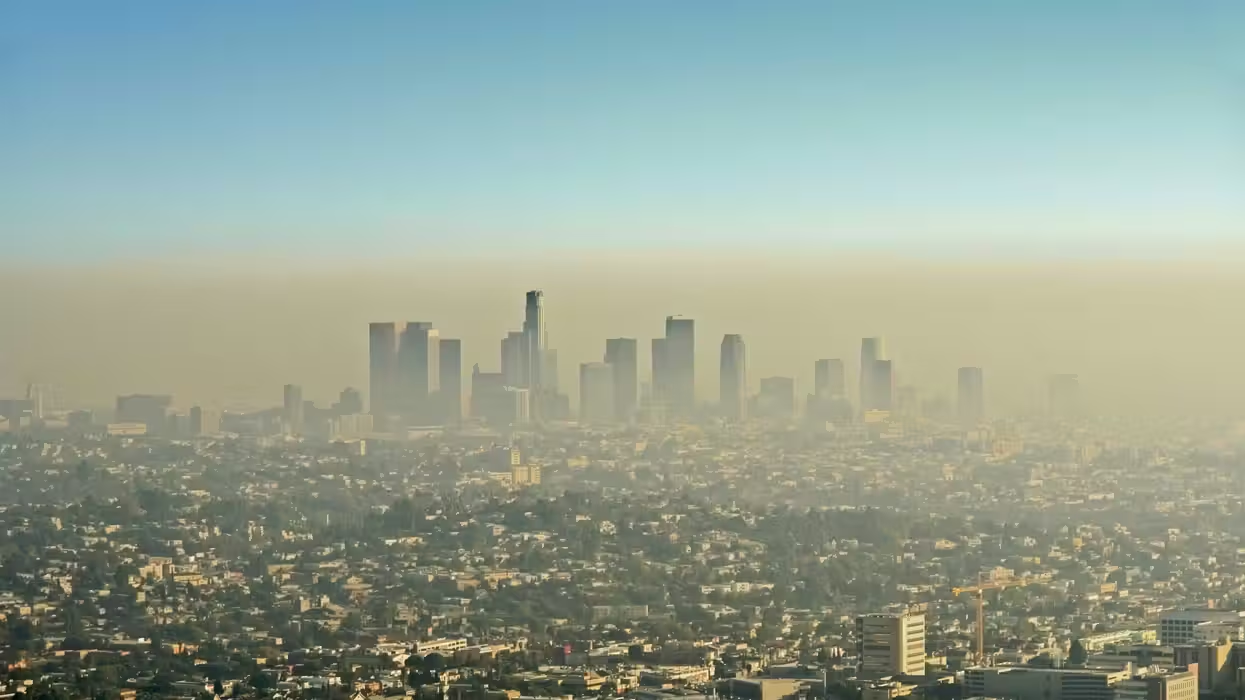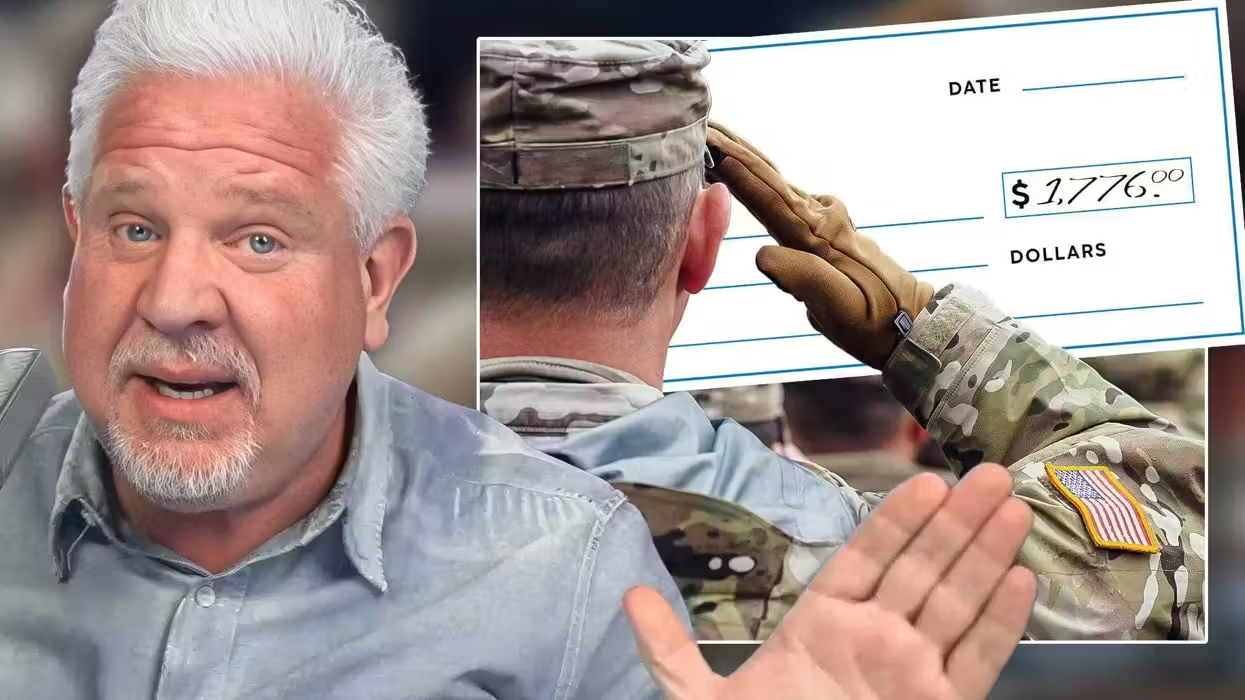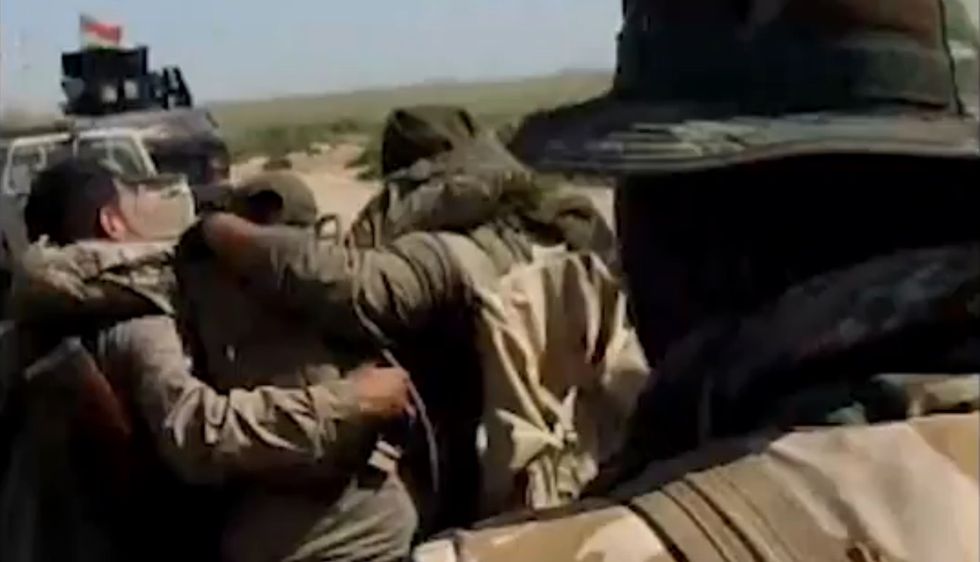
© 2025 Blaze Media LLC. All rights reserved.
Exclusive: Intense Helmet Cam Video Captures American Volunteers’ Nearly Deadly Run-In With Islamic State
April 08, 2015
"I don’t know how I’m alive."
Running through a field toward cover just outside a village in the Iraqi city of Daquq, Chris Toney said he could practically feel the hail of bullets whizzing past his head. He could hear the sound of the unsettling “crack” that bullets make when they hit nearby, just another reminder that his time on Earth could end in an instant.
“Down!” one of his commanders screamed.
The order sent Toney and his fellow fighters to the ground, the sound of rapid gunfire still ringing out in the distance. He had already witnessed one of his fellow Americans get shot in the leg right in front of him.
As he lay face-down in the grass, Toney said, he thought about why his team was so badly outmanned by Islamic State militants.
He said the fighters had kept him and his team pinned down by sniper fire for hours. When a United States aircraft finally arrived to lay down some air cover, everyone was relieved — but that relief was short-lived.
The U.S. aircraft, Toney claimed, dropped one bomb on a “piece of crap” truck and another that turned out to be a “dud” that failed to detonate. The plane then left and didn’t return (a claim the U.S. military would later refute), he recalled.
However, the problem of 150 to 200 militants determined to kill Toney and the rest of his unit remained. He said they realized they had no choice but to retreat.
Content warning: some strong language
Toney was able to make it to cover and survive the terrifying clash with the Islamic State. Two of his fellow Americans were injured during the op, one with the gunshot to the leg and another with a nasty shrapnel wound. But they were alive.
Toney, a Navy veteran, is no longer in the military. He was not in Iraq as a sanctioned member of the U.S. military, but rather as a volunteer, moved by his Christian faith to take the fight to the Islamic State.
He was joined by nine other brave Americans in Kurdistan. Among them were Army veterans Samuel Swann, Aaron Core, Ryan Gueli, Jeremy Woodard and Walter Fresh, as well as Daniel Meyers, who volunteered without any past military experience but is just as tough as anyone on the battlefield. Woodard was one of the first American volunteers to join the fight against Islamic State militants and also traveled to Syria in 2014.
When asked if he or the other men were worried about identifying themselves for fear of retribution, Toney said they refuse to live in fear of the Islamic State.
This is their story.
The Calling
Many times, a life-changing calling is not something you necessarily want to do, but rather something you feel you have to do. As fighters for the self-proclaimed caliphate slaughtered innocent men, women and children across the Middle East, Toney said he felt God calling on him to do something.
But Toney didn’t write to his congressman or petition the president. He got on a plane to Kurdistan, a region that includes parts of northern Iraq, prepared to help fight the Islamic State. He was accompanied by several other American veterans he contacted through Facebook, all of whom were tired of sitting back and waiting for the world to deal with the threat.
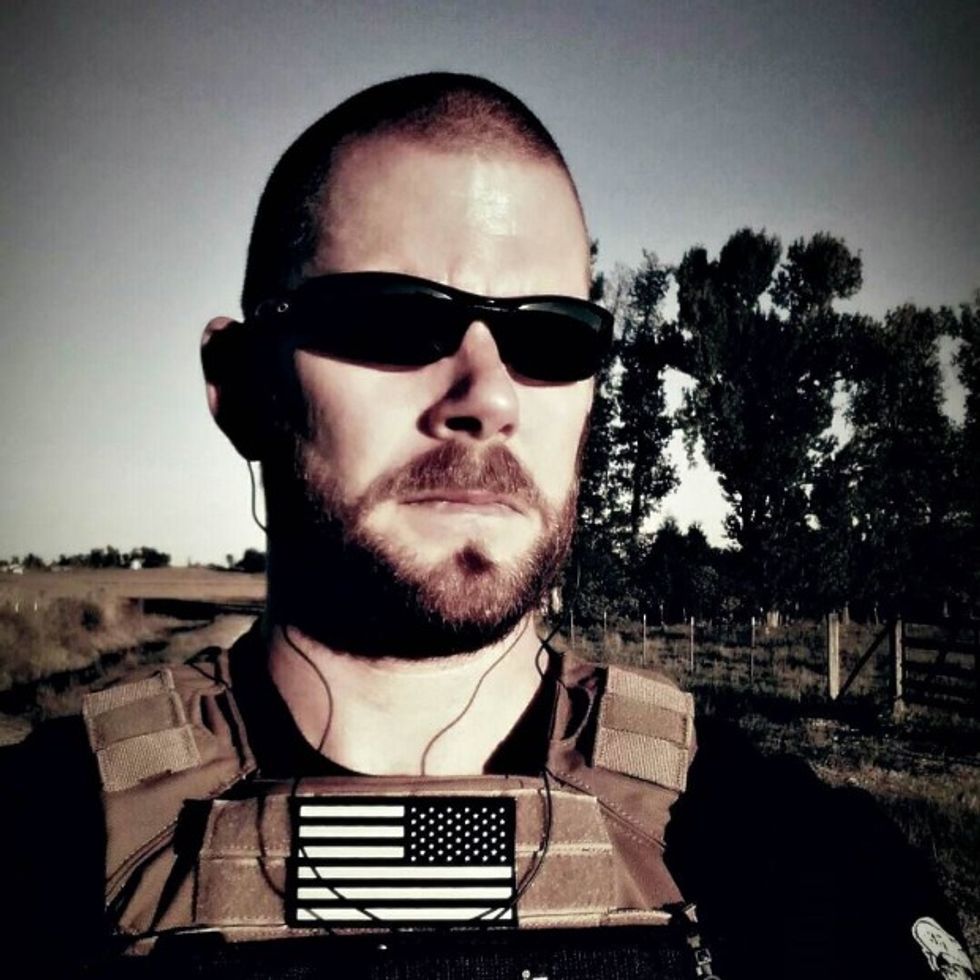
Offering an unprecedented look at the ground fight against the Islamic State in Iraq, Toney provided TheBlaze exclusive video from his time in Kurdistan.
“I saw what they were doing to my sisters and brothers in Christ over there, and how they are also killing Muslims, probably more than Christians,” Toney told TheBlaze in a phone interview. “I just felt like it was what God was calling me to do.”
He called the Islamic State “pure, unadulterated evil,” the equivalent of the Nazis who carried out the Holocaust.
“What do real men do when Nazis are killing Jews?" he asked rhetorically. "We always say we’d never let another Holocaust happen, but it’s happening. It’s happening right now. I’m not going to sit back and wait for somebody else to handle it.”
While still humble, Toney admitted that it "takes some balls" to volunteer to enter a war zone.
Toney said he arrived in Kurdistan on Jan. 15, where he linked up with Kurdish peshmerga fighters. He would soon consider them his “brothers.”
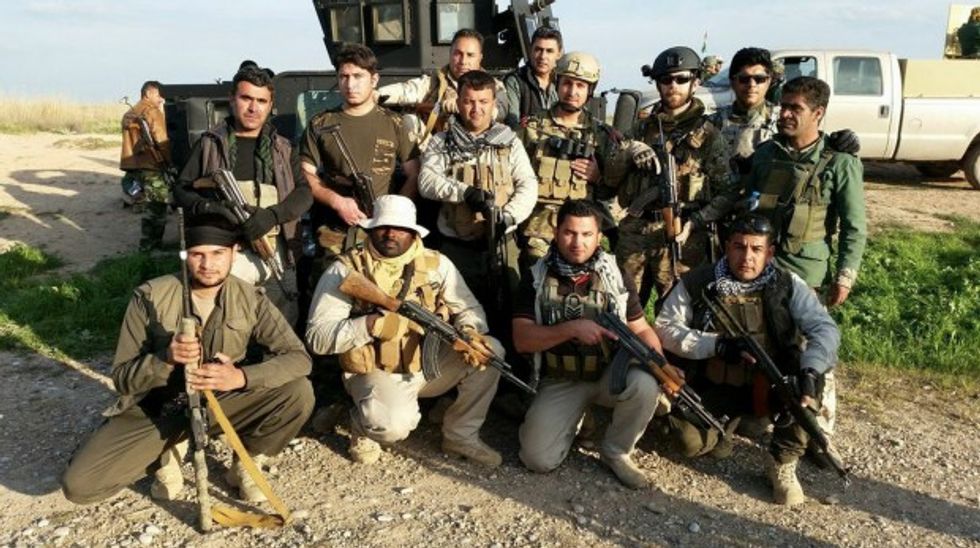
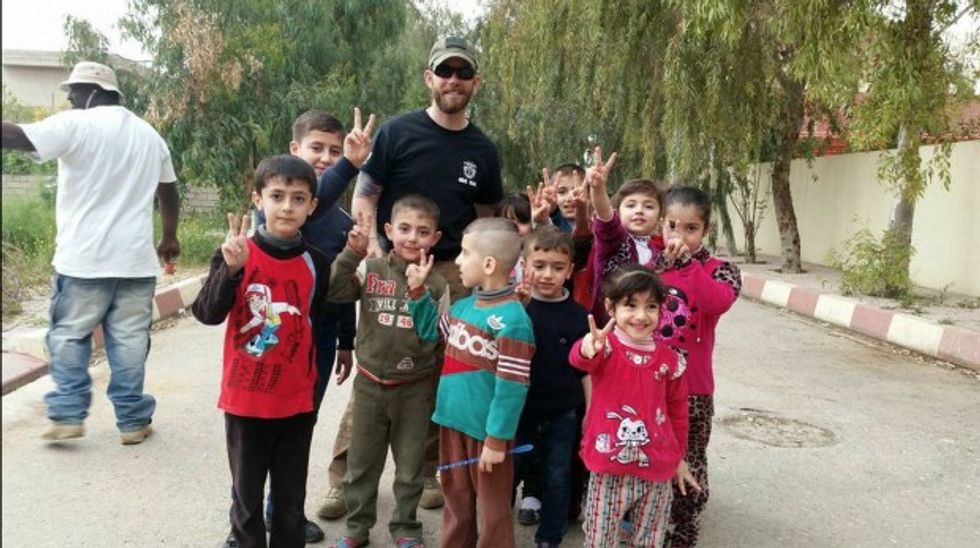
“For anyone wondering where the ‘moderate’ Muslims standing against the Islamic State, they are in Kurdistan,” Toney said.
He made it a point to personally recognize their translators, Muhommed Dalak Mehmed and Nazhad Fathi, who both also serve as Kurdish soldiers. He said they went out of their way to make them feel welcome and comfortable in the foreign land.
"I’m proud to call them my brothers, and they are Muslims. They didn’t care that we were Christians, and they treated us like one of their own," he added.
One of the first things Toney noticed was how poorly funded and armed the Kurdish fighters were, something he said needs to change if the U.S. really wants to defeat the Islamic State.
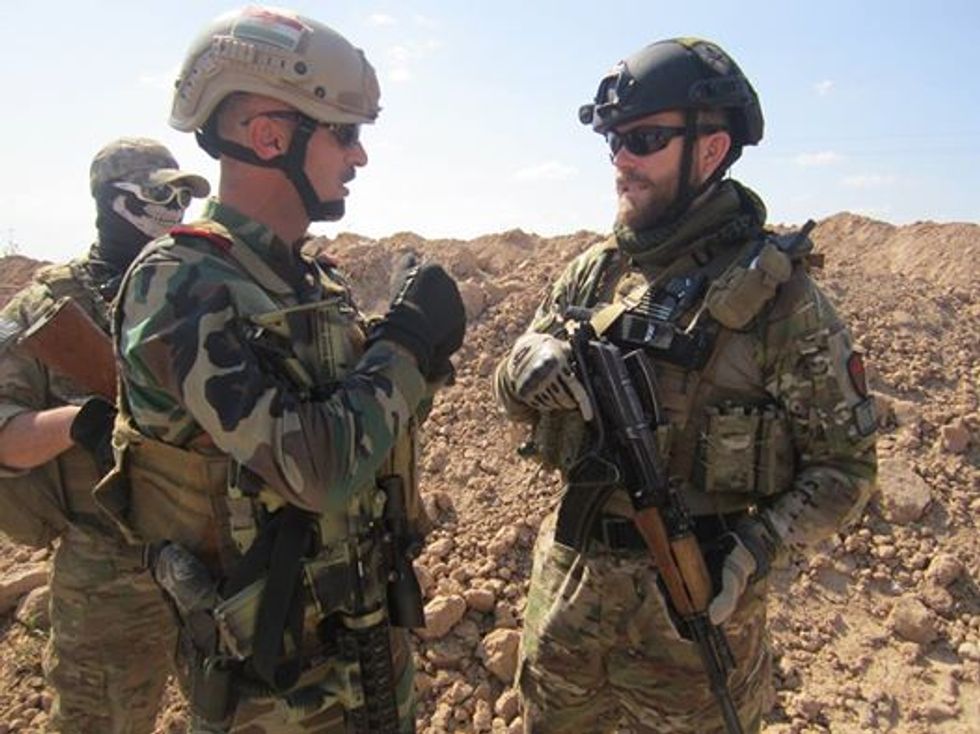
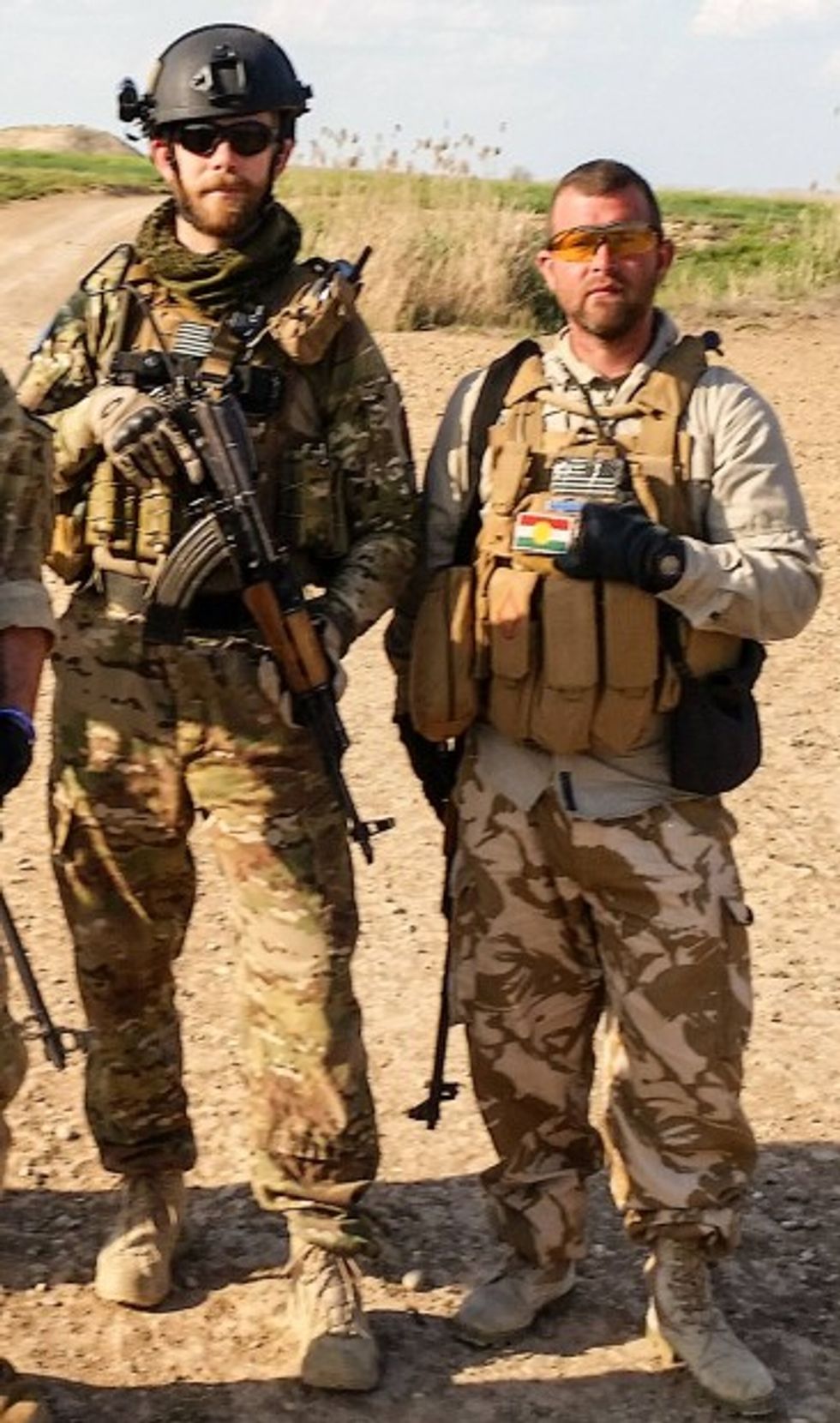
Because the Middle East is a geopolitical “spiderweb,” Toney said it seems the U.S. is reluctant to adequately arm and fund Kurdish peshmerga fighters because the nation ultimately wants to gain its independence, something several countries are determined to prevent. The United States’ strategic relationship with the nations complicates the situation greatly, he said.
In the 1800s, he explained, Kurdistan was divided into four regions, which reach parts of Syria, Turkey, Iran and Iraq. Kurdistan would likely have to take on all four nations in order to achieve independence, giving those countries a reason to oppose the U.S. arming Kurdistan too heavily.
“I used to think the U.S. needed to put boots on the ground to beat the Islamic State,” Toney said. “But the peshmerga are some of the bravest people I’ve ever known. They are literally taking the fight to the Islamic State. If we adequately supported them, they could be the boots on the ground.”
Toney also said he came to another unsettling realization during his time in Iraq: Islamic State militants are well-trained and disciplined fighters.
"They know what they are doing," he said, letting out a sigh. "I don't know who is training them — it could be some of the foreign fighters with military experience who join them — but they know all the maneuvers."
‘I Don’t Know How I’m Alive’
Toney was self-deployed in Kurdistan from Jan. 15 to Feb. 1 and then again from March 3 to 23. Several of his fellow Americans are still overseas, he said. He only recently returned to the U.S. to make sure his wounded "brother" made it home to his family after the dramatic battle with militants.
Asked if he was specifically involved in the firefight or if he killed any Islamic State militants, he said he was unable to answer.
Toney said that on March 18, he and some of the other American volunteers were part of a “big operation” to liberate five villages outside Daquq from hundreds of Islamic State militants. One of the villages was said to be housing a high-ranking Islamic State commander considered to be a high-value target.
It wasn’t long before Toney said that he, the Kurdish fighters and other Americans found themselves pinned down by enemy fire for "hours." After roughly three hours, he said a U.S. jet “finally” arrived to lay down the "highly inefficient" air support.
“We don’t understand it because this village had 150 to 200 ISIS members in it,” he told TheBlaze, adding that the presence of so many fighters was a strong indicator that the Islamic State commander was in the village. "We probably wouldn't have set up the way we did if we knew the airstrikes were going to go the way they did."
Toney said Islamic State militants were in possession of an unmanned aerial vehicle equipped with a camera. The fighters flew it overhead to establish their position, then started moving their tanks in to "pound" them with artillery fire, he said.
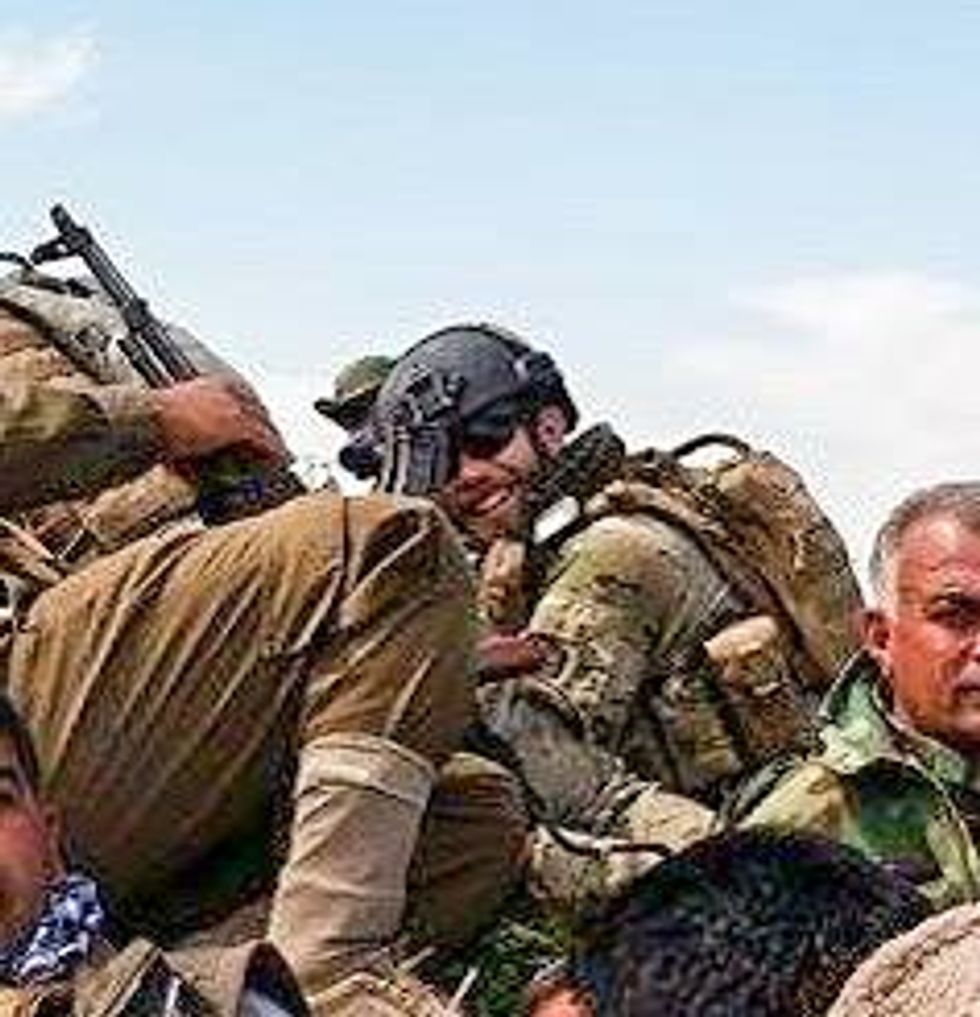
Some of the Kurdish forces had already started retreating, seemingly realizing what was about to happen. Toney said he and some other fighters were left in the compromised position, eventually coming under mortar fire.
The American volunteers realized they needed to retreat before the militants got lucky and a mortar landed on top of them. Toney said they took off running through a field toward cover as heavy gunfire rained down all around them. It was at this point, Toney said, that he witnessed Meyers go down after taking a bullet to his leg.
But Meyers, Toney said, is "tough as nails" and got back up and ran the rest of the way on his own without complaining once.
“I don’t know how I’m alive,” Toney said. “Actually, I do know, God probably had the bullets going around me like 'The Matrix.' It’s a miracle that I’m alive. I mean, we came underneath a hail of bullets.”
When Toney made it back to his designated cover area, he learned that Ryan Gueli, who was with another group on another part of the battlefield, was also wounded after taking some shrapnel to the leg. Miraculously, all of the American volunteers made it out alive.
But the Kurdish peshmerga suffered 24 casualties and 38 wounded, including the two Americans, he said. The deaths weighed heavily on all the American volunteers as they realized children had lost their fathers and wives their husbands that day.
The Navy veteran criticized the U.S. airstrikes, saying they put him and the anti-Islamic State forces at increased risk. Further, he said France laid down air cover during a previous battle and did a "fantastic job" by comparison.
"I never thought in my life I'd say France did a better job than the United States," Toney said through his own laughter.
However, U.S. Army Capt. John J. Moore, a spokesman for the U.S.-led international coalition fighting the Islamic State, told TheBlaze that Toney’s assertions about the failed U.S. airstrike are false.
He said the aircraft went into the mission with several targets and it was later confirmed that all of the targets were destroyed. Moore said he was unable to reveal what those targets were.
Watch additional raw footage provided to TheBlaze below:
Messages left with U.S. Central Command about the airstrikes were not returned at time of publication.
If anything, Toney said, he hopes something good will come out of his story, whether it serves as a starting point for improved Christian-Muslim relations or put pressure on the Obama administration to do the "right" thing and arm Kurdish peshmerga so they can continue to take the fight to the Islamic State. He also said his fellow American volunteers deserve to be honored for their sacrifice, some of which are still serving in Kurdistan.
But if more is not done to stop the Islamic State, Toney warned, they will continue to wreak havoc and leave a bloody trail in their quest to establish a global Islamic caliphate. At this point, he said, the Islamic State is the "world's problem."
---
Want to leave a tip?
We answer to you. Help keep our content free of advertisers and big tech censorship by leaving a tip today.
Want to join the conversation?
Already a subscriber?
more stories
Sign up for the Blaze newsletter
By signing up, you agree to our Privacy Policy and Terms of Use, and agree to receive content that may sometimes include advertisements. You may opt out at any time.
Related Content
© 2025 Blaze Media LLC. All rights reserved.
Get the stories that matter most delivered directly to your inbox.
By signing up, you agree to our Privacy Policy and Terms of Use, and agree to receive content that may sometimes include advertisements. You may opt out at any time.

